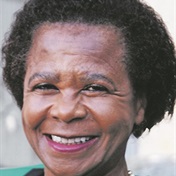
The problems confronting us can be successfully dealt with if we return to the source of our founding as a nation, writes Mamphela Ramphele.
Psychologist Nick Duffell, a product of British public schools, in his 2014 book, Wounded Leaders, describes the characteristics of graduates of these schools as follows:
"Men prematurely separated from home and family, from love and touch, they must speedily reinvent themselves as self-reliant pseudo-adults. Paradoxically, they then struggle to properly mature, since the child who was not allowed to grow up organically gets stranded, as it were, inside them. In consequence, an abandoned child complex within such adults ends up running the show.
"The Entitled Brain is one that is over-trained in rationality, has been trained away from empathy and has mastered and normalised dissociation in its most severe dimensions; it is consequently incapable of recognising the fault in its own system."
The global political environment is currently suffering the impact of leaders who display the "abandoned child complex" resulting from practices and social environments that left the children within them stranded. We need to look no further than Donald Trump in the USA, Boris Johnson in the UK, and Vladimir Putin in Russia.
These leaders seem unable to engage empathetically with others, especially women, without the need to dominate and belittle. They are not only lacking in empathy for their fellow human beings but also have little concern for the long-term future of the biosphere.
We need to also recognise that the current problems we are facing 25 years into our democracy have much to do with the woundedness of our leaders. Duffell's concern is about the toxic influences of the UK public school system, whereas our social malaise has to do with the legacy of the colonial system driven and led but those same products entrusted with running the affairs of the British Empire.
Leaders in our male-dominated society, in both the private and public sectors, unfortunately still model themselves on that ethos.
To add insult to injury, we also bear the burden of leaders who have had their own "organic development as young people" undermined by the social injustices of the past that separated them from one or both parents. Many are also products of the harsh realities of exile life that mimicked, in significant ways, the separation from love and human touch within boarding schools. The insecurity, abuses of power by some of the male leaders and competitive pressures of life in refugee and military camps have left significant wounds in the lives of the men and women who left home as young people and came back as adults.
It is against this background that the drafters of our Constitution inscribed the need to "heal the divisions of the past and establish a society based on democratic values, social justice and fundamental human rights" within the preamble. The sad reality is that 23 years after the adoption of our Constitution in 1996 there is still no national program to get this work of healing done.
The costs of our failure to heed this injunction are now weighing down on us. Persistent poverty, inequality and unemployment are the result of the on-going exclusion of the majority from participation in the productive processes of the economy. State capture is a manifestation of the "entitled brain" that has no empathy and has normalised dissociation from the suffering imposed on others by the actions of such leaders. Participants in this heinous crime, in both the public and private sectors, see nothing wrong with what they have done.
The laudable work being done by all the commissions of inquiry needs to be complemented by a national effort to immunise our society against this malignant disease. The first step is to acknowledge our society's vulnerabilities given the legacy of our past. The biggest error would be to imagine that state capture is simply a problem of a few wrongdoers. We are all vulnerable, and many more people have benefitted from state capture in different forms beyond those publicly implicated.
After all, the whole colonial project was state capture on steroids! The idea of occupying and extracting value from land that belongs to a people you designate as less than human, is what laid the foundations for the problems of poverty, inequality and unemployment. The compounding problem post 1994 has been our failure to fundamentally dismantle the socio-economic scaffolding that has continued to perpetuate social injustice.
Fundamental dismantling of the socio-economic foundations and scaffolding would be facilitated by confronting our woundedness from the legacy of our divided past. This requires us to honour the commitments we made to ourselves, and to future generations in the preamble of our Constitution. The practical steps are not complicated.
For example, mandating civic education in our education curriculum as other democracies do, would help our children grow up as critical thinking active citizens, who identify primarily as proud South Africans. Life Orientation is a perfect slot for mainstreaming civic education. What stops us?
The public sector needs to invest in making sure that we create a culture of public service that would not tolerate corruption, nepotism and impunity that have undermined our state institutions and put our economy at risk. The Public Service Commission should make it a requirement that every public servant undergoes healing conversation sessions that inculcate the democratic values, social justice and respect for human rights. This would help create healthier environments for men and women to work together with mutual respect.
Building civic education on the foundations many citizens already have from being brought up with Ubuntu principles in their families would secure a more selfless public service culture. Regular refresher courses should be part of personnel development for all staff and be incorporated into annual performance assessments. Values-based public service is the best vaccine against corruption and poor governance.
The private sector has a significant role to play in this process of healing divisions of our past and establishing democratic values, social justice and respect for human rights. Investing in embedding this healing process in the human resources and personnel development processes of every enterprise would yield a high return on investment. The development of shared values within the enterprise would increase trust within the entity and between it and its customers, enhancing productivity and sustainability.
Faith communities have a major role to play in this process of healing. Helping every person to develop a higher consciousness of their rights and responsibilities, as citizens would create healthier environments in our homes, communities and wider society. Healthier environments would promote greater respect for human rights and dignity that would foster collaborative social relationships.
The problems confronting us can be successfully dealt with if we return to the source of our founding as a nation. We attained our freedom by liberating ourselves from mental slavery and apartheid imposed by racist exploitation through an active consciousness raising campaign that mobilised students, workers, civil society groups, including faith communities.
We successfully mobilised against all odds. There is no impediment today to mobilising the positive energy of citizens from ward level, schools, higher education, workplace and wider society to reboot our transformation process.
We need to rouse ourselves from the sense of powerlessness we have allowed our country to sink into. We must get our nation to take the steps needed to free the human potential of all citizens to build the country so many sacrificed their lives for. Our grandchildren deserve no less than to live in a prosperous democracy.
- Mamphela Ramphele is co-founder of ReimagineSA.
Disclaimer: News24 encourages freedom of speech and the expression of diverse views. The views of columnists published on News24 are therefore their own and do not necessarily represent the views of News24.




 Publications
Publications
 Partners
Partners






















